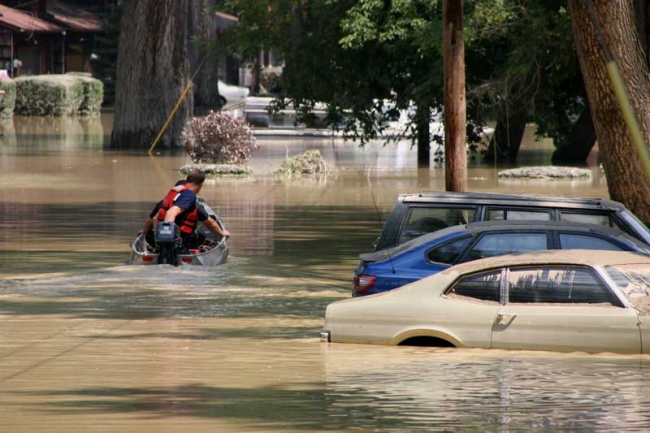BLOG
How Federally Declared Disasters Affect 1031 Exchanges

With so many weather-related natural disasters occurring with seemingly increasing frequency, let’s take a look at how such disasters affect persons seeking to complete exchange transactions. While the safe harbor timelines for conventional forward exchanges and for reverse exchanges are strictly enforced, there is some relief afforded in the event of a federally declared disaster in the form of time granted. The applicability of a particular federally declared disaster can be found on the IRS website, which provides news releases covering disaster events.
An IRS publication, IRS Revenue Procedure 2007-56 Section 17, sets forth the rules surrounding such disasters as they apply to forward and reverse exchanges. This revenue procedure states that the last day of the 45-day identification period, the last day of the 180-day exchange period for forward exchanges and the beginning and end dates for a reverse exchange can be extended. More specifically, those dates are postponed to the later of (i) 120 days or (ii) the last day of the general disaster period authorized in the IRS News Release. The revenue procedure further provides that in no event may a postponement period extend beyond (i) the due date for filing the tax return for the year of the transfer or (ii) one year. As a practical matter, should the due date for filing the tax return cut the postponement period short, the filing of an extension would lengthen the date to the full time period.
The revenue procedure further provides that a taxpayer qualifies for postponement only if the relinquished property in a forward exchange or the subject property in a reverse exchange have been transferred prior to the federally declared disaster and the taxpayer is (i) an “affected taxpayer” as defined in the applicable IRS News Release or (ii) the taxpayer has difficulty meeting the deadlines for any of the following reasons:
- The relinquished or replacement property are located in a covered disaster area as provided in the IRS New Release;
- The principal place of business of any party to the transaction (e.g. qualified intermediary, exchange accommodation titleholder, settlement attorney, title company, lending financial institution) is located in the covered disaster area;
- Any party to the transaction is killed, injured or missing as a result of the disaster;
- A document prepared in connection with the exchange or a relevant land record is destroyed, damaged or lost as a result of the disaster;
- A lender decides not to fund the closing due to the disaster or refuses to fund a loan to the taxpayer because, flood, disaster or other hazard insurance is not available due to the disaster or;
- A title insurance company is not able to provide the required title insurance policy necessary to close a real estate transaction due to the disaster.
The IRS revenue procedure also provides for a postponement to the last day of the 45-day period for applicable identification of property in a forward or reverse exchange if the identification was made prior to the federally declared disaster but the property was substantially damaged in the disaster event.
This is a summary of the rules pertaining to extensions to exchange transactions due to federally declared disasters. Before acting, taxpayers should reference the IRS Disaster Relief Guidelines and consult with a professional advisor.
Recent Tax Relief for Disaster Victims
Tax Relief for Victims of Hurricanes Irma and Maria

